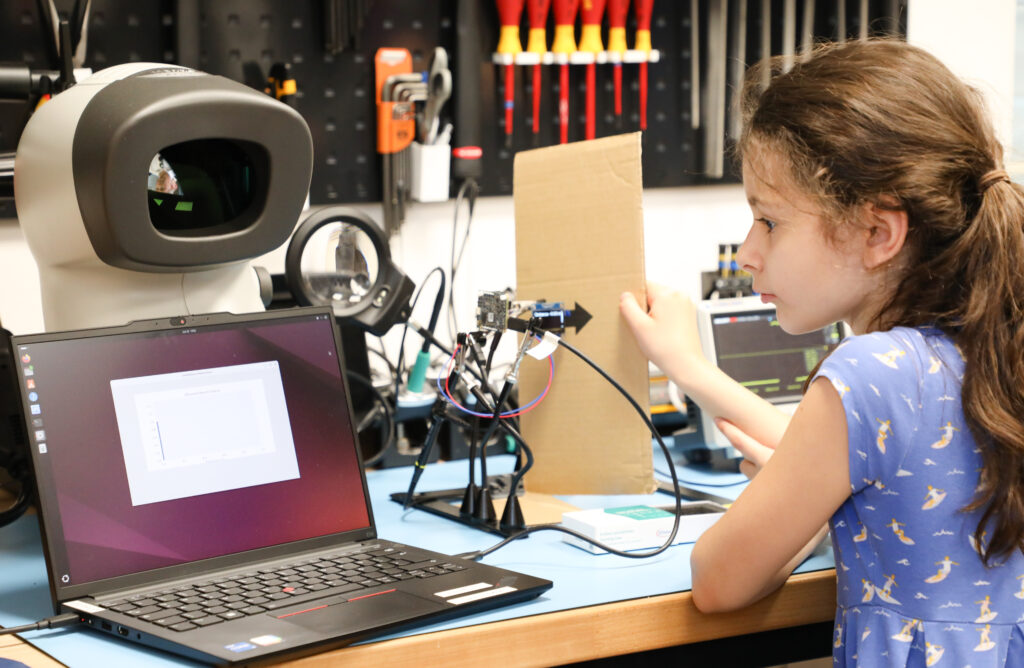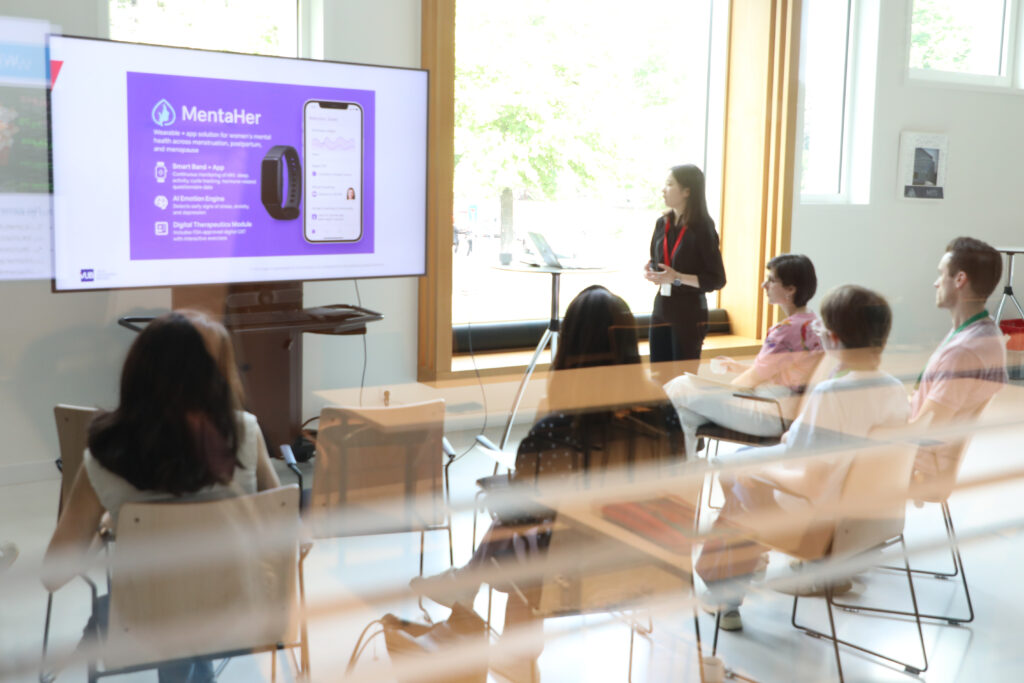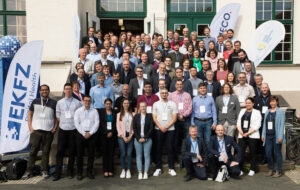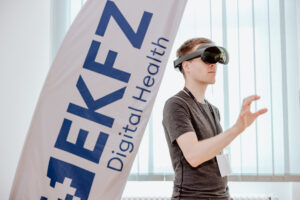Ivan R. Minev took over the Else Kröner Professorship for Electronic Tissue Technologies at Dresden University of Technology on June 1, 2023, a new position jointly established by the Leibniz Institute of Polymer Research Dresden (IPF) and the Else Kröner Fresenius Center for Digital Health (EKFZ-DG).
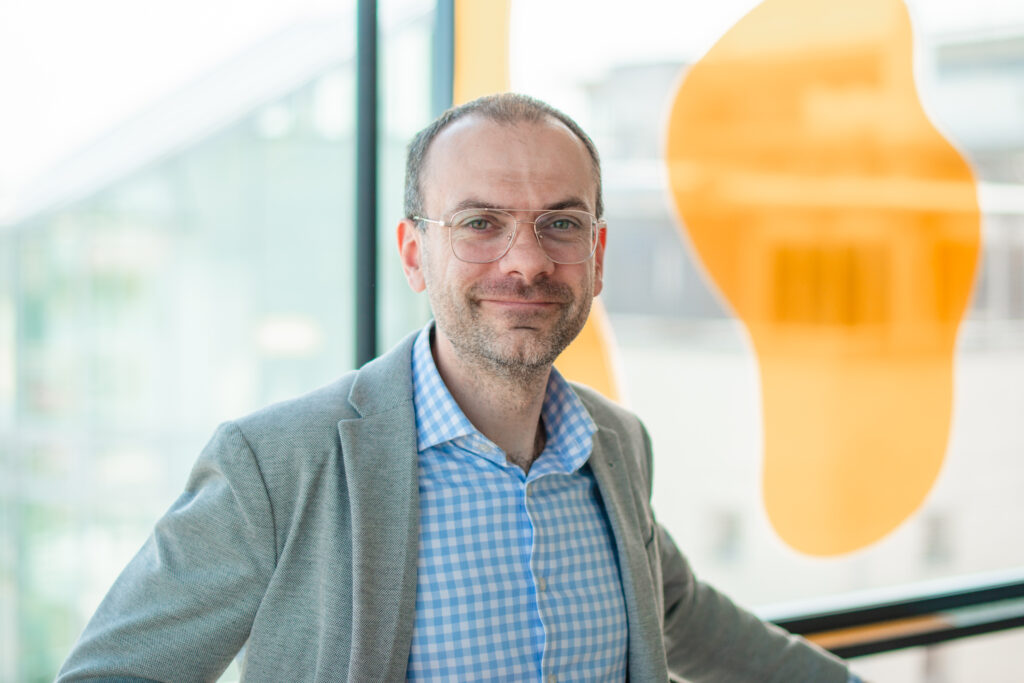
(c) IPF/Emanuel Richter
The goal of my research is to develop materials that are electrically conductive and biologically active, so that they can interact with cells and surrounding tissue and transmit information. These materials will be used in implantable devices to enable continuous monitoring and targeted treatment of diseases. I aim to merge electronic and biological systems to better treat neurological diseases such as Parkinson’s or epilepsy.
Prof. Ivan Minev
Else Kröner Professor for Electronic Tissue Technologies
Professor Minev is considered one of the leading researchers in the field of bioelectronic implant systems and previously worked at the University of Sheffield, U.K.. His approaches are characterized by a multidisciplinary perspective, combining materials science and electronics with medicine and biology.
New options through bioelectronic implants
Technologies for electronic sensing and control of body functions have become indispensable in medical technology. At the same time, they are the subject of intensive research that uses radically new concepts, for example to regenerate the injured nervous system. “The goal of my research is to develop materials that are electrically conductive and biologically active, so that they can interact with cells and surrounding tissue and transmit information. These materials will be used in implantable devices to enable continuous monitoring and targeted treatment of diseases. I aim to merge electronic and biological systems to better treat neurological diseases such as Parkinson’s or epilepsy,” explains Professor Ivan Minev.
Patient-oriented research for tomorrow’s medical technology
Interdisciplinary collaboration and patient-oriented research are core activities at the Else Kröner Fresenius Center for Digital Health. The new professorship for Electronic Tissue Technologies, jointly funded by the Else Kröner-Fresenius Foundation and the IPF, will create the conditions for decisively advancing the medicine of the future with patient-oriented systems. Professor Minev has the expertise and experience to intensify the collaboration between engineers, material scientists and physicians. His research profile will be instrumental in creating new treatment and therapy options for a wide range of diseases. The focus on digital health at the Carl Gustav Carus Medical Faculty of Dresden University of Technology will be strengthened and further developed with the new professorship, as will the system-oriented translational research of the Leibniz Institute of Polymer Research Dresden.
Additional information
Biography: Prof. Ivan R. Minev fills the newly created Else Kröner Professorship for Electronic Tissue Technologies at the Leibniz Institute of Polymer Research Dresden and the Else Kröner Fresenius Center for Digital Health from June 2023. Since 2019, Ivan Minev has held the professorship in Intelligent Healthcare Technologies at Sheffield University in the Department of Automatic Control and Systems Engineering (ACSE). Previously, he was a research group leader at the Biotechnology Center BIOTEC at Dresden University of Technology from 2016 to 2019. From 2012 to 2016, he was a postdoctoral fellow at the Center for Neuroprosthetics at the Swiss Federal Institute of Technology in Lausanne (EPFL), where he focused on the development of soft implants for the nervous system.
EKFZ for Digital Health: The Else Kröner Fresenius Center for Digital Health at TU Dresden was founded in September 2019. It is funded by the Else Kröner-Fresenius Foundation with an amount of 40 million euros for a term of ten years. The center focuses its research activities on innovative, medical and digital technologies at the direct interface with patients. The goal is to foster a new generation of clinicians with comprehensive technical knowledge and skills and, conversely, to equip engineers with a comprehensive understanding of the needs of clinicians and patients.
Leibniz Institute of Polymer Research Dresden: The IPF develops new polymer-based materials for applications in the fields of resources, health and information. Ivan Minev has been working with scientists at the institute since his first research period in Dresden; while working in Sheffield he was appointed IPF Fellow*. The establishment of the new joint professorship and the associated development of a new IPF research area will further expand the institute’s activities on bioelectronic materials for innovative interfaces between electronics and living matter.
* IPF Fellows are leading scientists at universities or renowned research institutes in Germany and abroad who are associated with the institute through collaborative activities.
Else Kröner-Fresenius Foundation (EKFS) – Promoting Research. Helping people: The non-profit Else Kröner-Fresenius Foundation is dedicated to promoting medical research and supporting medical-humanitarian projects. To date, it has funded around 2,200 projects. With an annual funding volume of currently more than 60 million euros, it is Germany’s largest foundation supporting medicine.
More News
Femtech, Ethics & Innovation: Highlights from the HALL-EKFZ Summer School 2025


